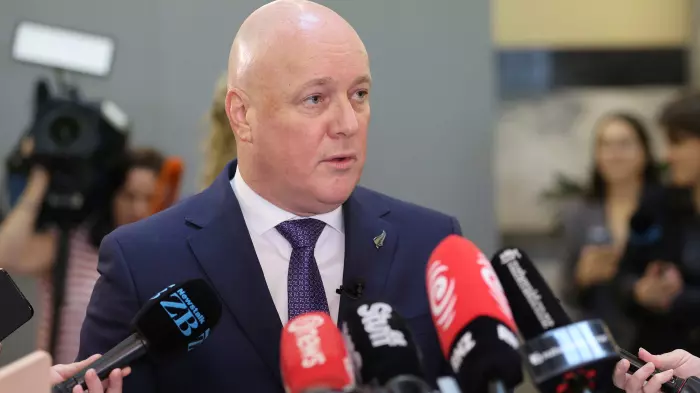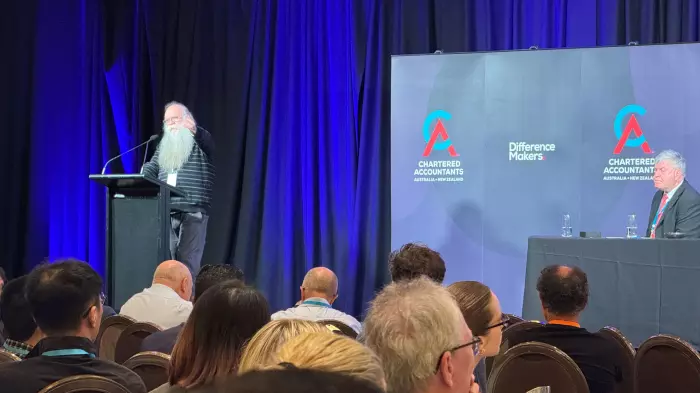Not many professions remain as inaccessible and unknown to the general population as political lobbying. Traditionally seen as a tool reserved for the elite, good lobbying can be an important lever for productive government. Done well, lobbying acts as an educational tool, ensures equitable access to the legislature, and allows individual interests to gain power in numbers.
Lobbying can be dressed up in a number of ways: advocacy, government relations, political engagement. It’s all the same: the process of influencing public and government policy at all levels – local, regional, national, even global. It involves the advocacy of an interest that is affected, actually or potentially, by the decisions of government leaders.
It is not a new phenomenon: as long as we’ve had Parliament in New Zealand (167 years), we’ve had lobbyists. The industry, however, hasn't done itself any favours: plagued by the perception it is full of silver-haired aristocrats who sit shoulder to shoulder with politicians setting the agenda for the rest of us to live by.
Modern-day lobbying looks vastly different from how it once looked. It is less about profit maximisation and more about impact and outcomes. The new generation of lobbyists – those I get to work with and teach – are often driven by the desire to give a voice to the voiceless. When compared with its economic and societal weight, the small-business voice remains surprisingly quiet. I suspect it is largely because owner-operators haven’t been given a way to draw effective government relations into their day-to-day processes. However, just like marketing and public relations, lobbying is not a dark art: when you have the basics, you can create a plan.
Five pātai to ignite government relations in your business
1. Why do you want to lobby?
The answer mustn’t be that you read a great article on BusinessDesk and decided to give it a go (though, this could be part of the reason!). There must be a purpose for beginning your government relations journey. Is it because the government is proposing to make legislative (law) change that will impact your business? Have you heard political rhetoric being used that doesn’t match the realities of your sector? Does your organisation have a legacy issue that has been stuck in bureaucratic limbo for years? These are the most common types of issues that act as the catalyst for a business engaging government relations assistance.
2. What do you want to achieve?
Now that you know your purpose, before you take any action you must know what you want to achieve. Just like in the aforementioned reasons for starting, there must also be an outcome in sight. For example, if you are looking to lobby the government because it is proposing legislative change that will impact your business, the outcome you are advocating for might be to:
- Stop the proposed law change.
- Weaken the impact of the proposed change.
- Improve the implementation of the proposed change.
- Strengthen the proposed change.
- Widen the scope of those captured by the proposed change.
These are all reasonable advocacy outcomes to pursue; whether you are able to achieve the outcome is another matter altogether. It is also important to consider the range of outcomes listed. It is not fair to assume lobbying is intrinsically negative; the “impact” legislative change has on your business could be positive. Therefore, consider whether it is in your interest to outline your support for the change, or lobby for the change to go further.
3. Who is going to lead your engagement?
Much like public relations, good government relations are built on credibility. Credibility is the quality of being believable or worthy of trust. Muddied messaging and conflicting perspectives can be damaging to the reputation of your business and its credibility. So, when it comes to government relations, especially kanohi ki te kanohi (face-to-face) meetings, it is preferable to have a sole “lead”. This individual should know how to communicate accurately and transparently and be well briefed on who they are meeting with. For a small business, this person is most often the chief executive or managing director.
4. What do you need to prepare?
Never leave your engagement to chance: if you’re meeting in person then go prepared with information to hand over that speaks to the matters you are raising. That way, if you don’t get to all your main points, you have, at the very least, provided them. This information should be easy to consume, well written, and provide evidence for your assertions. Include information about your organisation, your business card and contact information for any follow-up. It is preferable to take multiple copies to hand to political staff or officials who may also be in attendance.
5. How are you going to start?
Knowing how to put all the government relations theory into practice remains the biggest challenge for many businesses. However, there is one starting point accessible to all organisations no matter what size, sector or structure: your electorate MP. Every part of New Zealand is covered by both a general electorate and a Māori electorate, meaning every business – even those run from home – has two electorate MPs. The job of an electorate MP is to keep up with local issues, represent their voting district, and argue on behalf of local causes within Parliament. You can contact your electorate MP at Parliament or at their out-of-Parliament or local office.
Get clarity on these five questions and you will have an instant pathway to introduce lobbying into your business. And while there is no perfect formula for success in lobbying, no effort is too small. The only true constant for effective advocacy is time.
Holly Bennett (Te Arawa, Ngāti Whakaue, Ngāti Pikiao) is the founder and principal consultant of Auckland-based government relations firm Awhi and the founder of New Zealand’s leading government relations education organisation, Engage. Subscribe to PolitiPal, their monthly political pānui.












